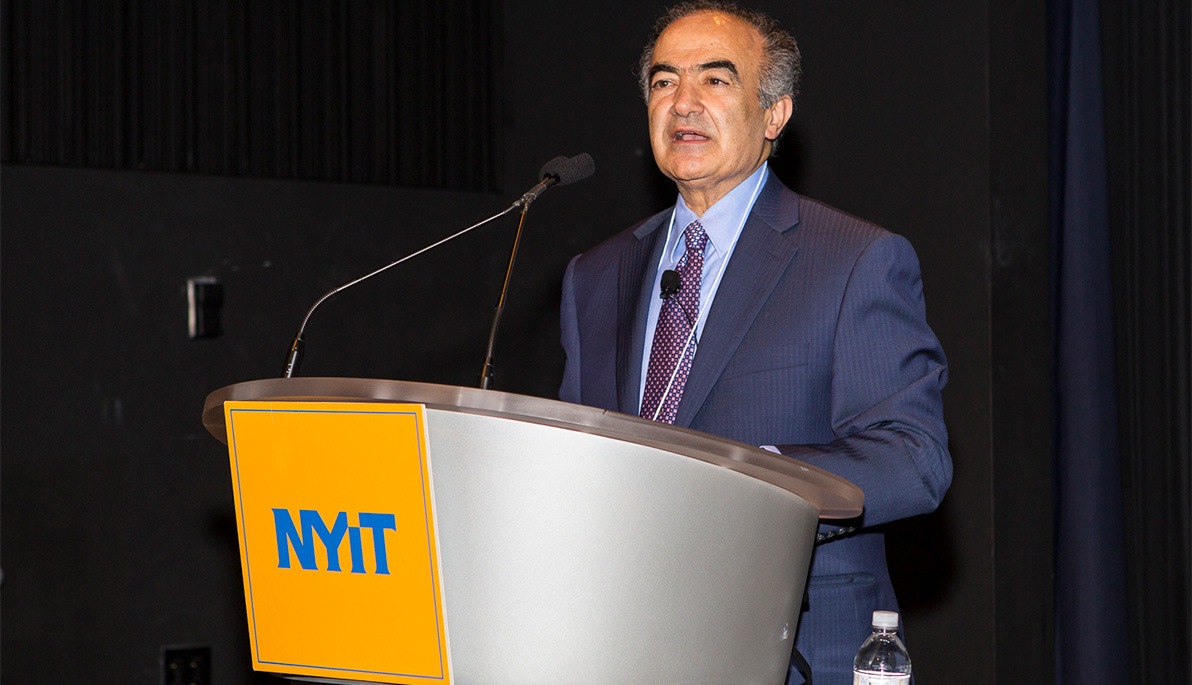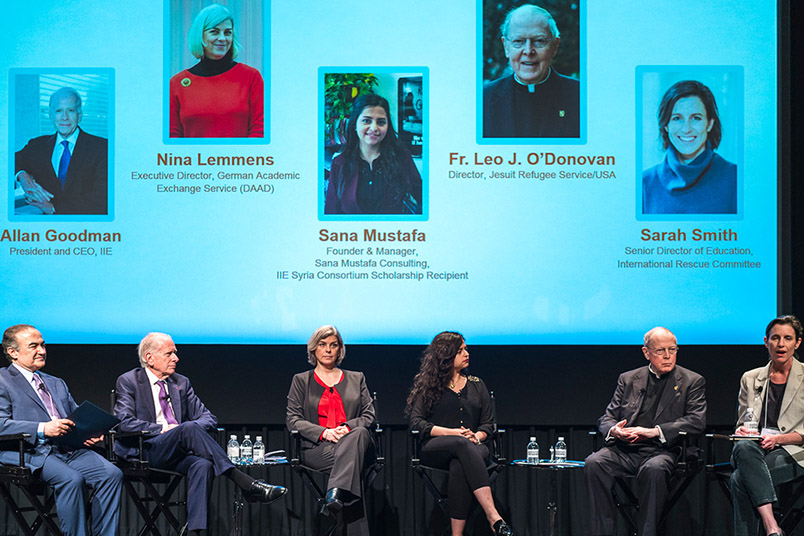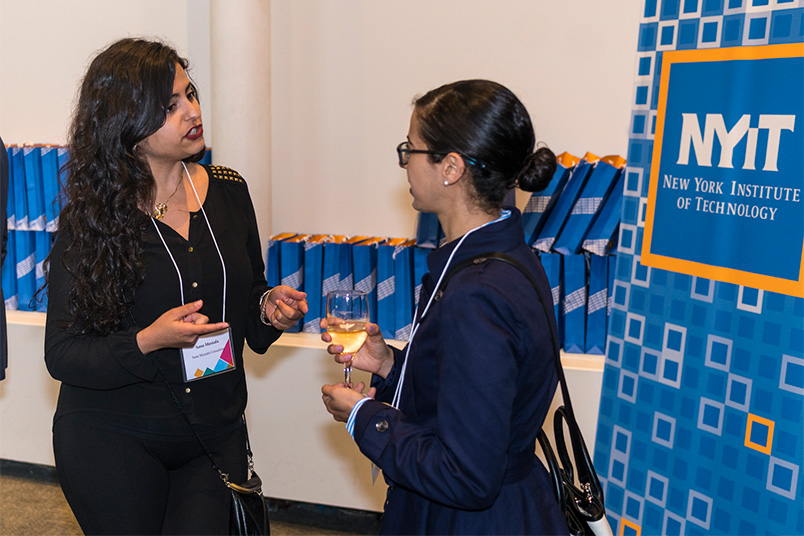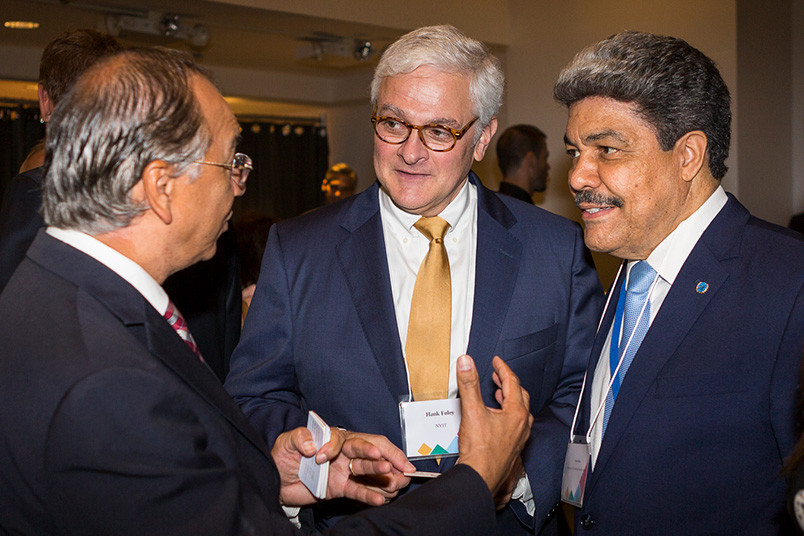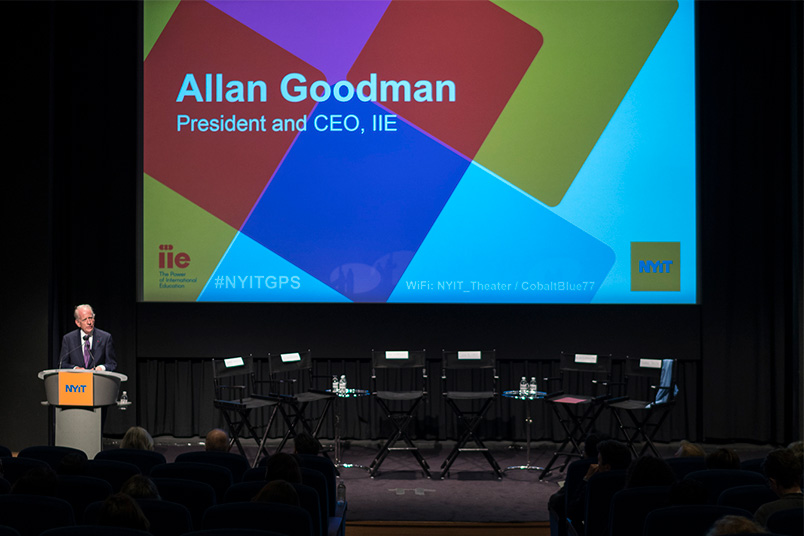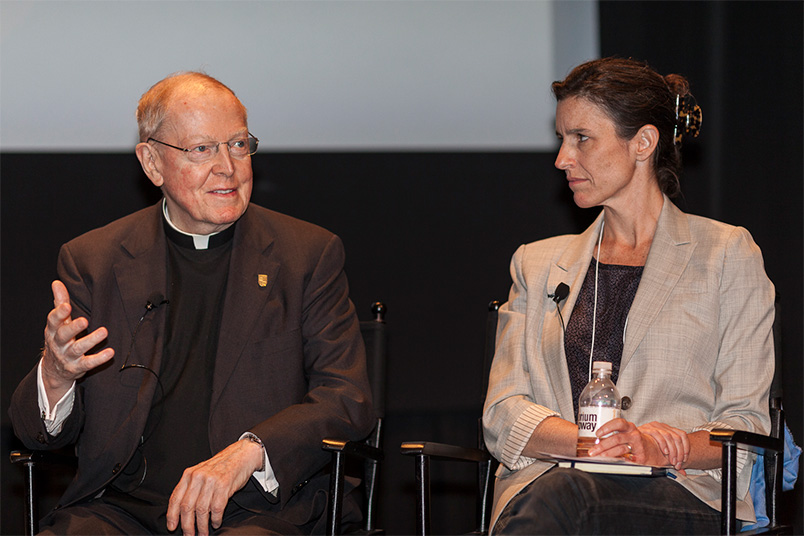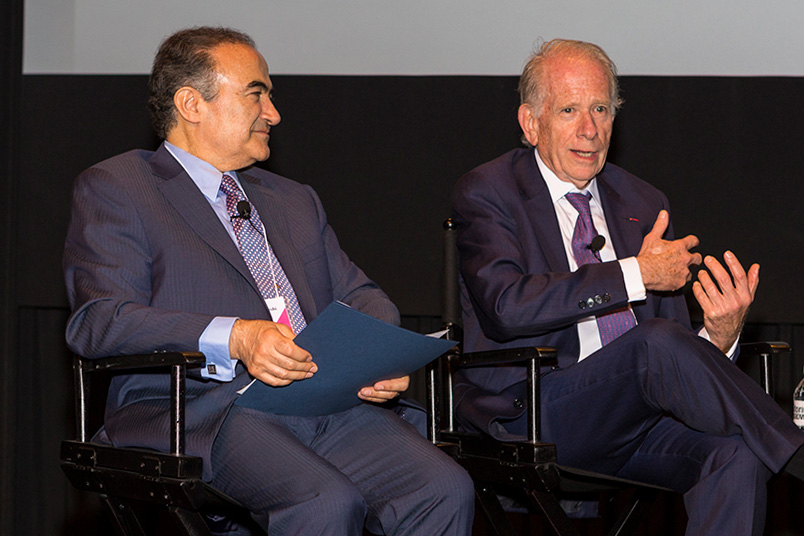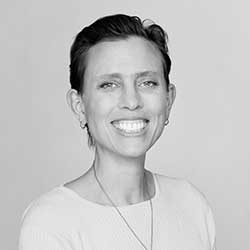News
Perspectives on Global Education: Higher Education for a “Lost Generation”
June 12, 2017
Photo: NYIT Provost and Vice President for Academic Affairs Rahmat Shoureshi, Ph.D., opens the panel discussion, “Perspectives on Global Education.”
The world is currently experiencing the biggest refugee crisis since the end of World War II. Among the millions of people displaced from their homes are those who, under normal circumstances, would be pursuing a university education. That issue, along with identifying ways to help those young people receive an education, was the topic of discussion at “Perspectives on Global Education,” the closing plenary session of NYIT’s first Global Partnership Summit.
The idea for the panel, which was held on June 5 at NYIT Auditorium on Broadway in Manhattan, originated with NYIT Provost and Vice President for Academic Affairs Rahmat Shoureshi, Ph.D. Partnering with the Institute of International Education (IIE), one of the world’s foremost organizations for helping displaced people find an institutional home, Shoureshi convened a distinguished panel of experts to speak to an international audience of educators and diplomats.
“NYIT has a proven legacy of forging global partnerships to encourage access to education,” said Shoureshi, who also noted that, according to a report by the UN High Commissioner for Refugees, just one percent of refugees attend university compared to 34 percent globally. “It is my hope that this event is the first of many that NYIT holds in cooperation with the Institute of International Education and other global partners to address a key humanitarian issue.”
In his keynote speech, IIE President and CEO Allan Goodman said, “We don’t need further research to identify our problem or potential solutions. We know what the disease is, and we know what the cure is: The disease is a lost generation of young people between 18 and 24 who are qualified for higher education. Education is the cure.” Goodman went on to explain that a successful solution depends on actions by individual institutions, faculty members, and others who can assist this large group of eager but vulnerable young people.
As a refugee herself, panelist Sana Mustafa, founder and manager of Sana Mustafa Consulting and former recipient of an IIE Syrian Scholarship, explained that she has been unable to return to Syria after her father was kidnapped while she was on a trip to the United States. She discussed what it was like to be alone in a strange country in such circumstances and offered sincere thanks to IIE and to individuals who supported her. “When people think about what they can do for displaced persons, they forget about the importance of friendship,” she said.
Nina Lemmens, another member of the panel and executive director of the German Academic Exchange Service (DAAD), noted that her country has both produced and absorbed large numbers of refugees over the past 100 years. Her father, for example, arrived in Germany as a refugee in 1945. Lemmens also spoke about German President Angela Merkel’s decision to allow Syrians into Germany in 2015 and of the resulting “transformation” of Germany. The situation, she said, “brought out the worst in some cases, but overall it has brought out the best in Germans.” Absorbing refugees into German society “has not been easy, but it’s working.” During the Q&A that followed, both Lemmens and Goodman noted that places like Germany and the U.S. have excess capacity in their institutions of higher education that could be used to help refugees pursue degrees. “We have plenty of seats,” said Goodman.
The event also featured Sarah Smith, senior director of Education for the International Rescue Committee, who discussed the idea of training refugees to teach other refugees, and Father Leo J. O’Donovan, S.J., director of Jesuit Refugee Service/USA and a past president of Georgetown University, who called the current worldwide refugee situation “a crisis beyond imagining” and described the work the Jesuit Refugee Service carries out with people in Chad, Afghanistan, and Ethiopia.
NYIT President Hank Foley, Ph.D., extended a welcome to the audience, which included members of the New York-based diplomatic corps; scholars from universities around the world visiting NYIT for the summit; faculty members from NYIT and other institutions; workers and volunteers at non-profit organizations; and interested community members. The audience members were eager to find ways to make things better for refugees and clustered to discuss next steps after the panel discussion. Babak Beheshti, Ph.D., associate dean and professor at NYIT School of Engineering and Computing Sciences said, “This was something that needed to be discussed. This panel was an eye opener for a lot of us.” Mariam Bujalil of the Universidad Iberoamericana in Mexico City, who was visiting NYIT for the GPS, stated that as an expert in textile design, she would welcome the chance to learn from Syrians, who have a rich history in this field. Jeffrey Raven, associate professor at NYIT School of Architecture and Design echoed Bujalil’s comment, saying, “These communities have skills they could share with us, and we have some skills we could share with them.”
In his remarks, Foley said, “We live in an unusual time right now, and for many people, it’s hard to remain optimistic, but I think we have to remain optimistic and keep working.” He then thanked Shoureshi “for having the vision to see this issue and to see [NYIT] as part of the solution.”
Andre Beldi of Newton Paiva University in Brazil summed up the sentiment shared by many of the GPS conference attendees: “We loved the [conference] program, especially about the refugees. We have to join this effort and create synergies with all the countries that are represented here.”
